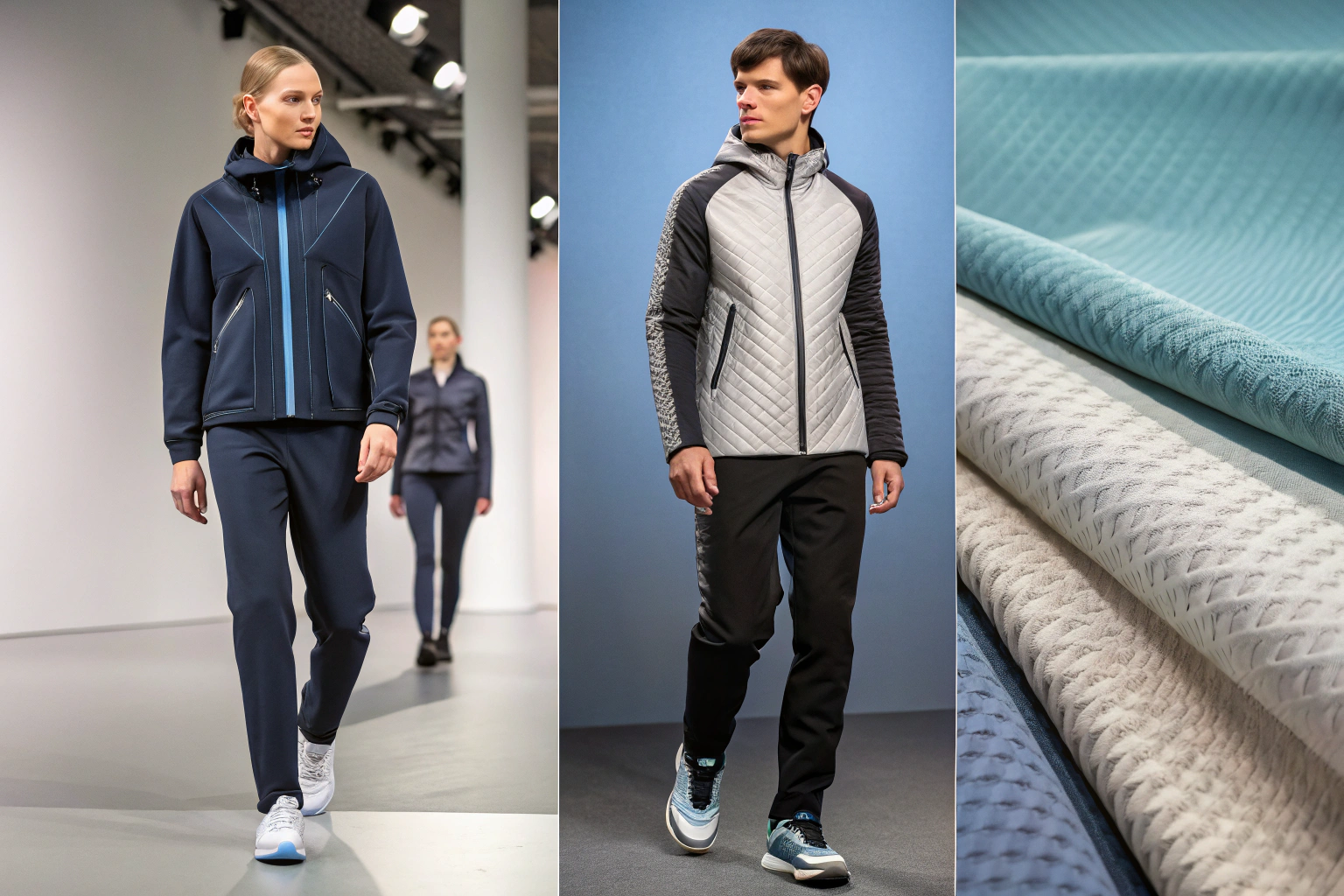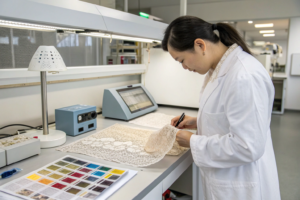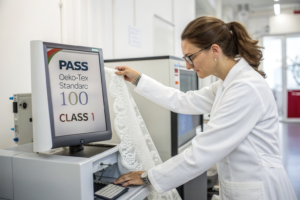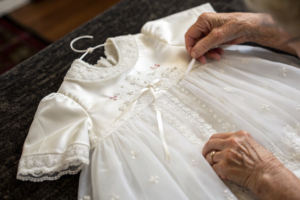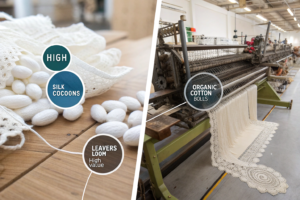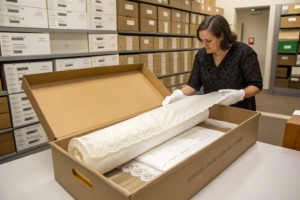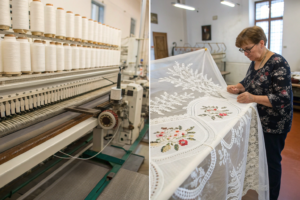When choosing fabrics for high-performance apparel, the challenge is finding the right balance between comfort, style, and functionality. Many textiles offer one or two of these qualities, but very few combine all three seamlessly. For global buyers and fashion brands, this balance is even more critical in an industry where customer expectations and climate variations demand constant innovation.
PCM microcapsule-treated fabrics offer a unique solution by adapting to temperature changes in real-time, giving the wearer consistent comfort regardless of environmental fluctuations. They represent a new generation of textile technology that merges science and style.
As a manufacturer deeply rooted in the textile hub of Keqiao, I’ve seen firsthand how these fabrics can elevate both the technical performance and market appeal of garments. In this article, I’ll explain why PCM microcapsule fabrics deserve a place in your next collection.
Benefits of PCM Microcapsule Fabrics in Apparel
PCM microcapsule fabrics are designed to maintain an optimal body temperature by absorbing, storing, and releasing heat as needed. This makes them ideal for high-performance clothing, from luxury coats to activewear.
One of the biggest advantages is their ability to extend comfort across varying weather conditions. Whether you're walking through a snowy street or entering a heated indoor space, the microcapsules react instantly, stabilizing the thermal environment close to your skin.
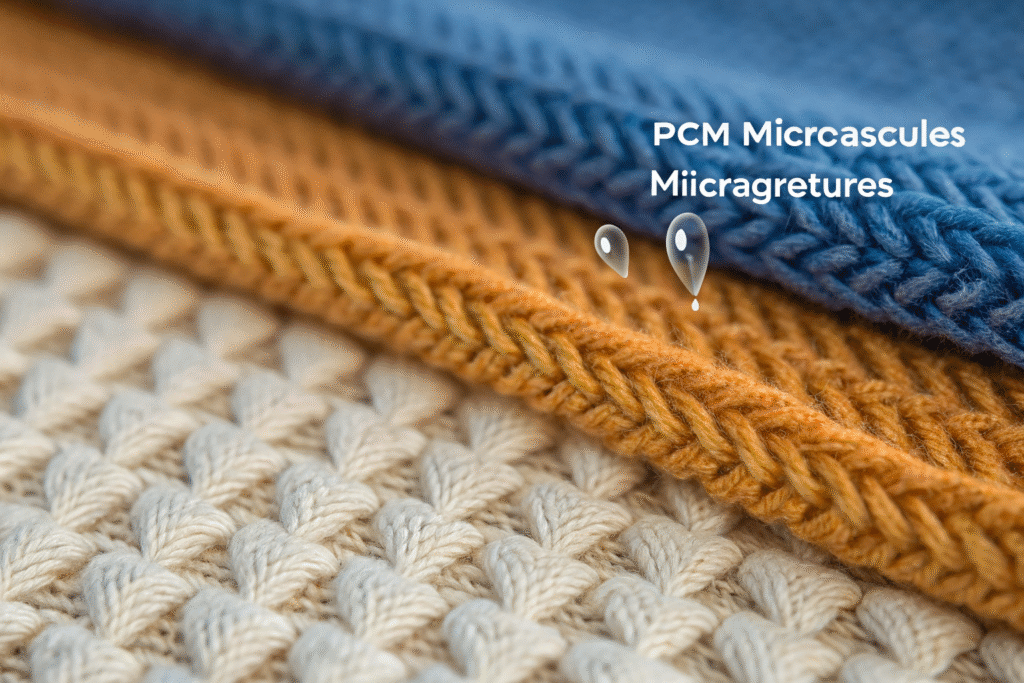
How do PCM microcapsules regulate temperature?
PCM microcapsules contain substances like paraffin wax or bio-based alternatives that change phase between solid and liquid at specific temperatures. This phase change absorbs or releases latent heat, creating a buffering effect against external temperature shifts. When embedded into textiles, these microcapsules maintain a consistent feel against the skin, reducing the need for heavy layering.
By integrating PCM microcapsules into woven or knitted fabrics, manufacturers can achieve a balance of softness, durability, and thermal adaptability without compromising fabric breathability.
Can PCM-treated fabrics replace seasonal wardrobes?
While PCM fabrics excel at temperature regulation, they work best when paired with other performance characteristics like moisture-wicking fibers or water-repellent coatings. They won't fully replace the need for seasonal garments, but they do reduce the need for excessive wardrobe changes, making them a sustainable choice for consumers seeking versatile clothing.
How PCM Technology Improves Fabric Comfort?
Comfort is a key factor in any garment purchase, and PCM technology addresses multiple aspects beyond just warmth. It creates an adaptive microclimate for the wearer, allowing comfort in diverse situations without changing outfits.

What makes PCM comfort different from ordinary insulation?
Unlike traditional insulation, which traps air and slows heat loss, PCM actively interacts with body heat. When body temperature rises, the microcapsules absorb excess warmth; when it falls, they release stored heat. This active response is similar to thermoregulatory processes in nature, providing a more balanced experience.
Additionally, fabrics with PCM treatment often work well with elastic performance fibers, ensuring comfort during high-movement activities.
Does PCM affect fabric weight or breathability?
One common concern is that adding microcapsules might make fabrics heavy or less breathable. However, advanced integration techniques ensure that PCM is distributed evenly without affecting drape or airflow. According to research by Textile World, modern PCM-treated fabrics retain similar breathability to untreated counterparts while offering superior comfort.
PCM vs. Traditional Thermal Fabrics: Which is Better?
Choosing between PCM-treated fabrics and conventional thermal options depends on intended use, budget, and brand positioning. Both have merits, but PCM offers unique adaptability.
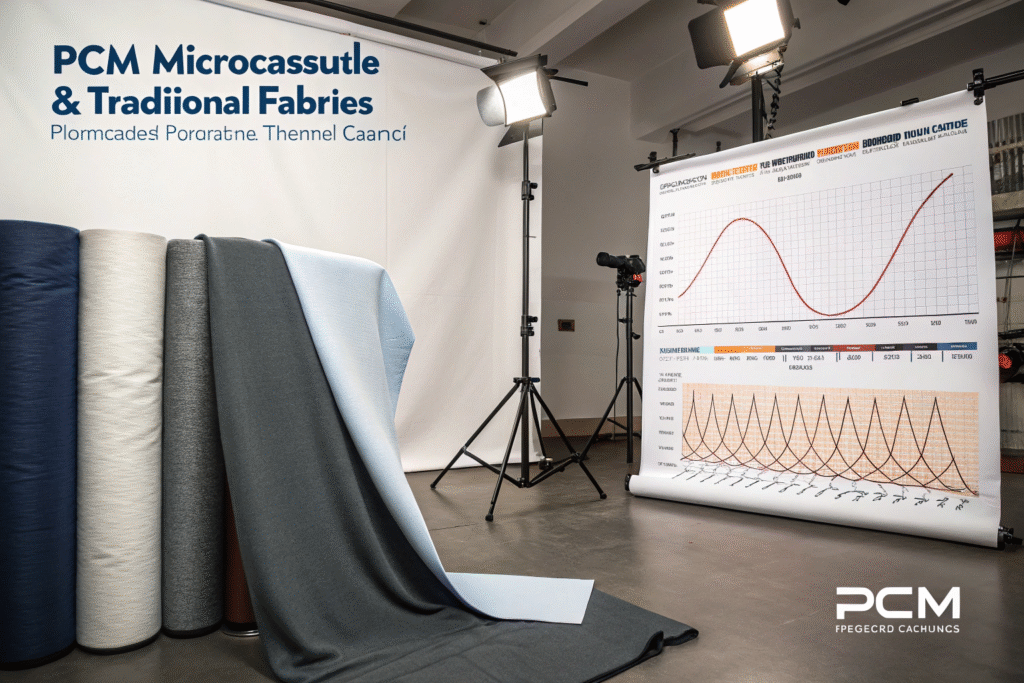
Are PCM fabrics more cost-effective in the long run?
While PCM-treated fabrics may cost more initially, they often reduce the need for multiple specialized garments. This leads to lower wardrobe turnover and potential cost savings over time. For brands, fewer SKUs can mean reduced inventory complexity and better forecasting accuracy, as noted by Apparel Resources.
In sectors like outdoor gear, where performance consistency is critical, PCM can be a selling point that justifies higher pricing.
How do durability and maintenance compare?
Traditional thermal fabrics often rely on loft and air trapping, which can degrade with washing. PCM microcapsules, when correctly integrated, remain effective through many wash cycles. Brands like Outlast Technologies have demonstrated PCM’s durability in commercial-scale products, making it a viable long-term investment for both consumers and manufacturers.
Applications of PCM Fabrics in Fashion and Sportswear
The versatility of PCM fabrics allows them to be used across fashion, sportswear, and even industrial applications. Their adaptability makes them a preferred choice for brands targeting customers with active lifestyles.
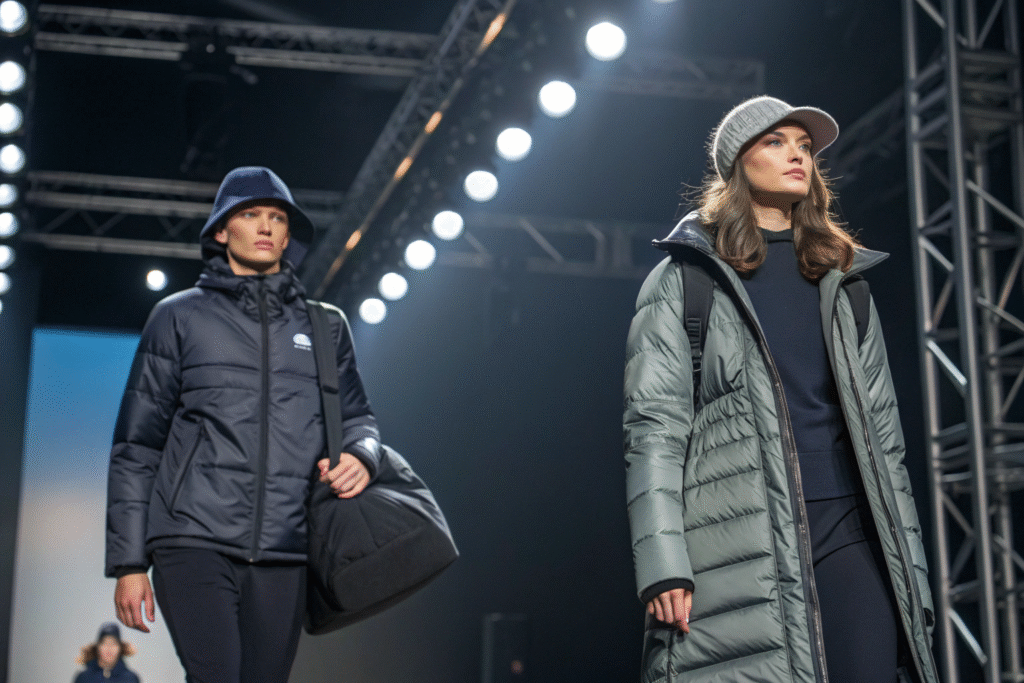
Where do fashion brands use PCM fabrics most?
PCM-treated textiles have gained popularity in luxury outerwear and functional streetwear, where customers expect both performance and style. Designers often use them in lining fabrics, mid-layers, and accessories like gloves or scarves.
By leveraging PCM’s adaptive qualities, brands can appeal to a broader range of climates and markets without overcomplicating production lines.
How is PCM shaping the sportswear market?
In sportswear, PCM fabrics are being used for base layers, cycling jerseys, and running jackets. They help athletes maintain an optimal body temperature during high-intensity activity, reducing fatigue. According to ISPO, brands that integrate PCM can position themselves as leaders in performance innovation, attracting a tech-conscious consumer base.
Conclusion
Phase Change Material microcapsule-treated fabrics are redefining what’s possible in apparel technology. They offer adaptive comfort, performance, and durability without sacrificing style or breathability. From luxury fashion to high-performance sportswear, PCM is proving to be a smart choice for brands aiming to differentiate themselves in competitive markets.
If you are ready to integrate PCM-treated fabrics into your next collection, contact our Business Director Elaine at elaine@fumaoclothing.com. At Shanghai Fumao, we specialize in developing custom, high-quality fabrics that meet global performance standards and deliver market-winning appeal.

